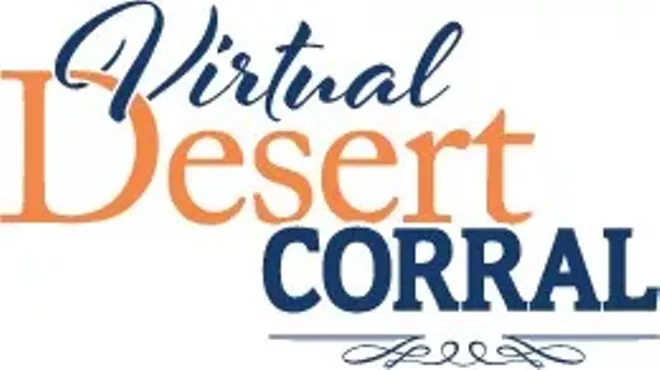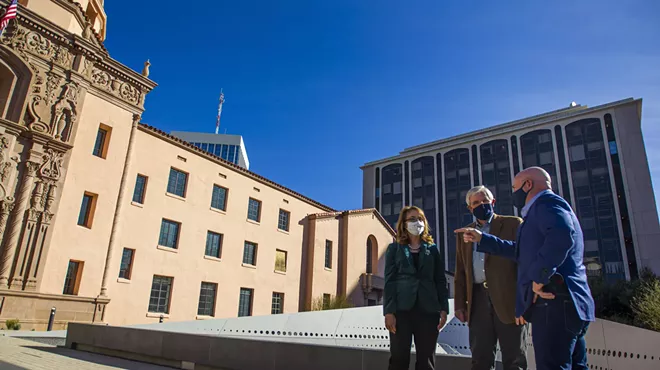Friday, May 8, 2020
Desert Museum Renews Association of Zoos and Aquariums Accreditation
The Arizona-Sonora Desert Museum received a strong vote of confidence this week when it was granted accreditation by the Association of Zoos and Aquariums independent accreditation commission.
The association is a nonprofit organization “dedicated to the advancement of zoos and aquariums in the areas of conservation, animal welfare, education, science and recreation” and acts as the accrediting body for zoos and aquariums in the United States and 11 other countries.
The Arizona-Sonora Desert Museum was founded in 1952, and today contains more than 4,800 living animals spanning more than 240 species. The museum is also home to more than 56,000 plants of 1,200 taxa and an impressive mineral and fossil collection.
“I, the Board of Trustees, and all the staff and volunteers of the Arizona-Sonora Desert Museum are extremely pleased to hear that the Museum has, once again, earned accreditation through the Association of Zoos and Aquariums,” said museum executive director Craig Ivanyi, in a statement. “The AZA is the gold standard for the zoological industry and maintaining accreditation is critical to the credibility of the Museum and all its sister organizations, as we remain steadfastly focused on our critical conservation mission.”
To earn accreditation, the Desert Museum went through a thorough review process that includes animal welfare, veterinary programs, conservation, education, and safety. Zoos and aquariums must complete the process every five years to maintain their accreditation.
“The Arizona-Sonora Desert Museum is among the outstanding aquariums and zoos that have met or exceeded our rigorous accreditation standards,” said association president and CEO Dan Ashe. “The people who live in Tucson can be assured that the Desert Museum is providing the highest-quality animal care and welfare and is contributing to initiatives that save animals from extinction.”
According to the association, the accreditation process includes “a detailed application and a meticulous on-site inspection by a team of trained zoo and aquarium professionals” covering every aspect of a facility's operations.
Even though the museum is closed to the public during the COVID-19 pandemic, staff are still on-site to provide care to the museum’s collection. For more information, visit desertmuseum.org.
The association is a nonprofit organization “dedicated to the advancement of zoos and aquariums in the areas of conservation, animal welfare, education, science and recreation” and acts as the accrediting body for zoos and aquariums in the United States and 11 other countries.
The Arizona-Sonora Desert Museum was founded in 1952, and today contains more than 4,800 living animals spanning more than 240 species. The museum is also home to more than 56,000 plants of 1,200 taxa and an impressive mineral and fossil collection.
“I, the Board of Trustees, and all the staff and volunteers of the Arizona-Sonora Desert Museum are extremely pleased to hear that the Museum has, once again, earned accreditation through the Association of Zoos and Aquariums,” said museum executive director Craig Ivanyi, in a statement. “The AZA is the gold standard for the zoological industry and maintaining accreditation is critical to the credibility of the Museum and all its sister organizations, as we remain steadfastly focused on our critical conservation mission.”
To earn accreditation, the Desert Museum went through a thorough review process that includes animal welfare, veterinary programs, conservation, education, and safety. Zoos and aquariums must complete the process every five years to maintain their accreditation.
“The Arizona-Sonora Desert Museum is among the outstanding aquariums and zoos that have met or exceeded our rigorous accreditation standards,” said association president and CEO Dan Ashe. “The people who live in Tucson can be assured that the Desert Museum is providing the highest-quality animal care and welfare and is contributing to initiatives that save animals from extinction.”
According to the association, the accreditation process includes “a detailed application and a meticulous on-site inspection by a team of trained zoo and aquarium professionals” covering every aspect of a facility's operations.
Even though the museum is closed to the public during the COVID-19 pandemic, staff are still on-site to provide care to the museum’s collection. For more information, visit desertmuseum.org.













